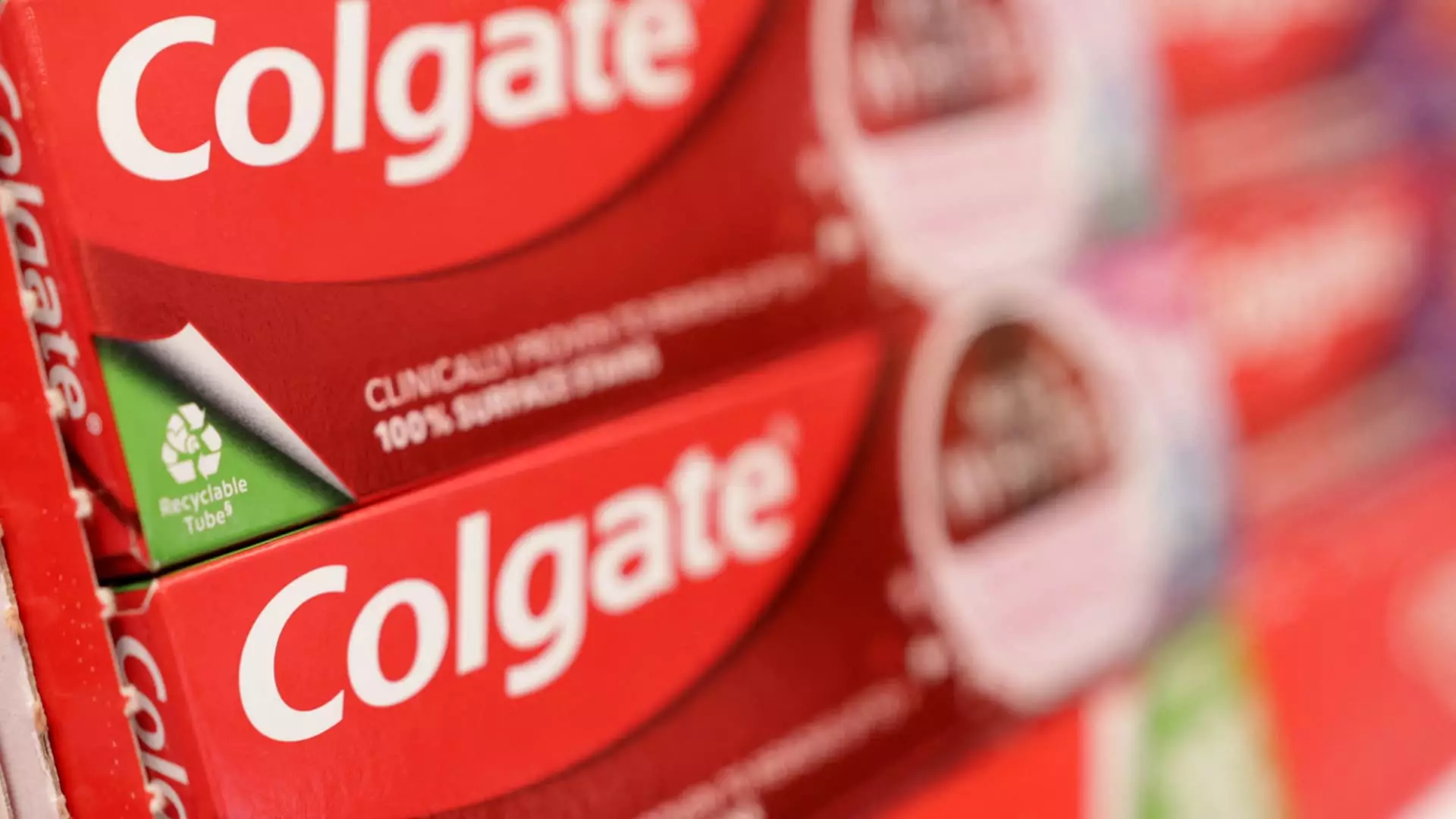As we delve into midday trading, it’s crucial to analyze the dynamics of several companies steering market sentiments with significant price movements. The fluctuations of these stocks reflect broader trends and encapsulate investor sentiment, financial performance, and market forecasts. Here, we break down the status of notable players, examining each company’s quarterly performance and associated forecasts.
In today’s trading session, Colgate-Palmolive has garnered attention after its shares dropped approximately 4%. The household products titan released its fourth-quarter earnings, which fell short of analyst forecasts. This underperformance is attributed chiefly to adverse foreign exchange conditions, a pressing issue for many multinational corporations. Looking forward, the company has cautioned investors that 2025 sales may continue to struggle, raising legitimate concerns regarding the company’s long-term growth strategy. As consumers remain price-sensitive in the current economic environment, Colgate’s ability to adapt and innovate will be critical in regaining market confidence.
On a contrasting note, KLA Corporation’s stock saw a 2% rise after the semiconductor manufacturer recorded impressive results in the fiscal second quarter. The company’s adjusted earnings reached $8.20 per share, substantially exceeding the $7.75 forecast by analysts. With a revenue of $3.08 billion—over $100 million more than expected—KLA’s results underscore the ongoing demand for semiconductor technology. Despite potential market volatility, KLA’s performance indicates a strong position in a sector experiencing explosive growth.
Vertex Pharmaceuticals experienced a robust 7% increase in its share price following the U.S. Food and Drug Administration’s approval of its non-opioid painkiller. This milestone marks a significant development, as Vertex becomes the first company in decades to introduce a novel class of pain relief medication, providing a crucial alternative to traditional opioid therapies. This approval not only highlights Vertex’s innovation capabilities but also represents a shift towards safer pain management options in the medical community.
In stark contrast, Deckers Outdoor witnessed its shares plummet around 17% despite raising its full-year revenue guidance to $4.9 billion. Analysts had estimated a slightly higher target of $4.93 billion, leading investors to react negatively. Although the fiscal third-quarter results exceeded expectations, the inability to meet full-year projections suggests deeper issues within Deckers’ operational strategy. The company’s reliance on its flagship brands, Ugg and Hoka, may need to be diversified to ensure sustained growth.
AbbVie’s shares surged by 6% after delivering better-than-expected fourth-quarter results. The pharmaceutical company reported adjusted earnings of $2.16 per share, surpassing analyst predictions. Importantly, AbbVie has reaffirmed a high single-digit compound annual revenue growth rate through 2029, providing a promising outlook for investors. This confidence from management indicates a robust pipeline of products that could sustain the company’s growth trajectory.
Atlassian has distinguished itself with an impressive 16% surge in shares, reaching a new 52-week high. The software firm posted adjusted earnings of 96 cents per share on revenue of $1.29 billion, both metrics surpassing market expectations. This strong showing reflects the increasing demand for collaboration and productivity software solutions, which have gained traction, particularly in hybrid working environments. The company’s dedication to innovation and customer satisfaction appears to be rewarding shareholders handsomely.
Conversely, Walgreens Boots Alliance faced a severe setback, witnessing a decline exceeding 7% in its stock price. The pharmacy chain announced the suspension of its quarterly cash dividend, a move often indicative of financial distress. The ongoing “long-term turnaround efforts” hint at severe operational challenges, compelling the company to prioritize debt reduction and cash flow improvements. Investors are watching closely to see how effectively Walgreens can navigate these turbulent waters.
Chevron’s shares declined by 3.8% after it reported adjusted earnings below expectations, driven by disappointing results in its refining division. Meanwhile, Beazer Homes experienced a staggering 16% drop after failing to meet analyst earnings expectations in its fiscal first quarter, despite reporting revenue that exceeded estimates. These scenarios illustrate the fluctuations that can occur within commodity-sensitive sectors and the housing market, shaping investor expectations and confidence.
As midday trading progresses, the different trajectories of these companies reflect the complex interplay of financial performance, market conditions, and investor sentiment. While some firms like KLA and Vertex excel, bolstering investor confidence, others like Walgreens and Deckers face pressing challenges. Moving forward, how these companies navigate their respective hurdles will be pivotal in shaping both their futures and the broader market landscape.

